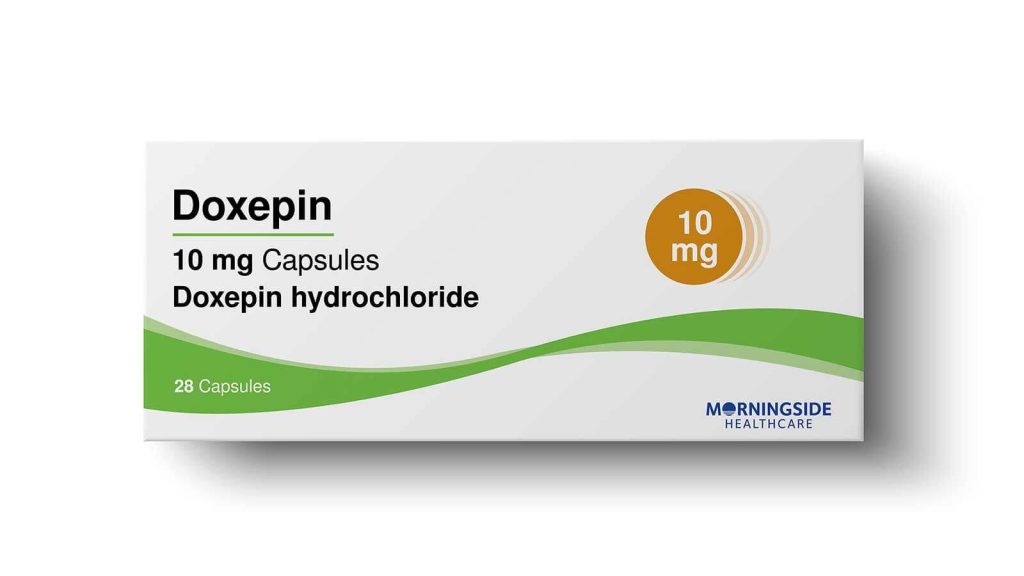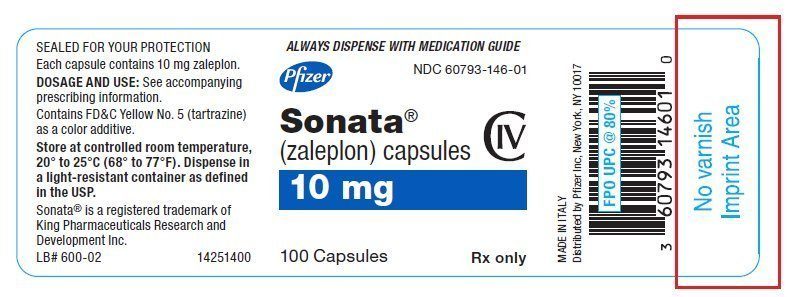Insomnia refers to the challenge of experiencing difficulty sleeping for more than three days a week. This difficulty may manifest as trouble falling asleep, staying asleep, or waking up too early with an inability to return to sleep.
Insomnia is terrible. Imagine coming home after a hectic day at work, trying to rest, you’ve done everything right yet sleep somehow just seems to be far away from you. The best of us have been here, and while many factors cause this, there is just one thing that is very important in the end, how do you kill these ceaseless sleepless nights?
A considerable portion, almost one-third, of adults in the U.S. grapple with insomnia. If you find yourself in this situation, know that you are not alone. For those who have explored insomnia treatments, such as lifestyle changes and cognitive-behavioral therapy, without substantial improvement, the option of sleep medication may come to mind. However, it’s crucial to consider some important factors before embarking on this path. Firstly, these medications come with significant risks. Secondly, it’s advisable to use them for short durations only. Additionally, there is limited convincing evidence that sleep medications contribute to long-term health improvement.
Insomnia can have various causes, including medications, pain conditions, or mental health issues such as depression or anxiety. In some cases, there might be no straightforward explanation for the inability to sleep.
Depending on the specific type of insomnia you’re experiencing, your healthcare provider may suggest one or more sleep medications. These medications may differ in their effectiveness, with some being more suitable for aiding in falling asleep, while others are better at supporting uninterrupted sleep. It’s important to communicate with your healthcare provider about which aspect of sleep troubles you more to determine the most appropriate medication for your situation.
Because we care about your health and entire well-being, in this article we will be revealing to you the 10 best medications you can take to help you fall asleep.
1. Doxepin

Doxepin, marketed under the brand name Silenor, is a sleep aid that doctors may recommend for individuals dealing with insomnia, allowing its use for a duration of up to 3 months. This medication is designed to assist in both falling asleep and maintaining sleep.
Available in immediate-release tablet form, Silenor comes in 3 and 6 milligrams (mg) doses. Individuals must consult with their doctors to determine the most appropriate dosage for their specific needs.
However, there are certain precautions to consider. Silenor is not recommended for individuals taking monoamine oxidase inhibitors, a type of antidepressant, or those with conditions such as glaucoma or urinary retention. Some potential side effects include central nervous system (CNS) depression, worsening depression or suicidal thoughts, and unusual thinking patterns with behavior changes.
For individuals who are pregnant or nursing, it’s advisable to consult with a healthcare professional before using Silenor. In the case of children or adolescents, it should only be administered as directed by a medical professional.
2. Temazepam

Temazepam, sold under the brand name Restoril, belongs to the benzodiazepine class of medications. It’s important to note that misuse of this medication may lead to dependency and addiction.
Restoril is prescribed for the short-term treatment of insomnia and is typically recommended for 7–10 days. Following this period, a doctor will evaluate the individual to assess whether there might be an underlying cause contributing to their insomnia. Pregnant individuals must avoid taking Restoril due to potential risks.
Restoril may induce various side effects, including drowsiness, fatigue, headache, nausea, dizziness, dry mouth, vertigo, anxiety, depression, diarrhea, confusion, and nightmares. The medication is available in different dosages, ranging from 7.5 to 30 mg, and individuals should engage in a discussion with their doctor to determine the appropriate and safe dosage for their specific needs.
3. Eszopiclone

Eszopiclone, marketed as Lunesta, is designed to assist individuals in both falling and staying asleep. However, it’s crucial to be aware that Lunesta is categorized as a controlled substance, carrying the risk of misuse and dependency. Over time, individuals may also experience diminishing effects or increased tolerance to the medication.
While generally considered safe, reported side effects encompass dizziness, an unpleasant taste in the mouth, viral infections, headaches, anxiety, dry mouth, rash, and hallucinations. It’s noteworthy that Lunesta can prompt complex sleep behaviors, such as sleepwalking or driving while asleep. If such behaviors occur, discontinuation of use is advised, and individuals should promptly inform their doctor.
For parents or guardians considering this medication for children or adolescents, consulting a doctor is essential. Similarly, pregnant individuals should seek medical advice before taking it. The recommended starting dose for Lunesta is 1 mg, with the option for a doctor to adjust to 2 or 3 mg if necessary.
4. Ramelteon

Ramelteon, also known as Rozerem, may be prescribed by a doctor to facilitate the process of falling asleep, and uniquely, it is sometimes recommended for longer-term use.
Rozerem is available in a standardized dose of 8 mg, and individuals are advised not to exceed a single daily dose.
Notably, Rozerem stands apart from many other sleep aids as it is not classified as a controlled substance, indicating a lower likelihood of misuse or dependency. Nevertheless, users should be aware of potential side effects, including drowsiness, dizziness, fatigue, and the possibility of worsening insomnia. Allergic reactions are also a potential concern for some individuals.
Caution is advised by pregnant women, those with severe liver impairment, individuals taking the medication fluvoxamine, or those who have experienced allergic reactions to the medication in the past.
5. Suvorexant

Suvorexant is designed to assist individuals in both falling asleep and maintaining sleep. However, it’s crucial to note the potential risks associated with this medication, including the possibility of misuse and the development of dependency. Similar to other controlled substances, it can induce central nervous system impairments, impacting activities such as driving.
Additional concerns include the potential for worsening suicidal thoughts or depression, engagement in complex sleep behaviors, and experiencing sleep paralysis. Clinical trials have reported other potential side effects, including diarrhea, dry mouth, upper respiratory tract infection, headaches, dizziness, unusual dreams, and cough.
A doctor may prescribe a dose ranging from 5 to 20mg, with caution exercised as higher doses demonstrated an increased likelihood of adverse reactions based on clinical trials.
6. Halcion

Halcion is prescribed by doctors for the short-term treatment of insomnia, typically spanning 7–10 days. However, due to its potential for dependency and misuse, it is not recommended for long-term use in managing insomnia.
Common side effects associated with Halcion use include ataxia (lack of muscle coordination), drowsiness, dizziness, and lightheadedness. Additionally, some individuals may experience complex sleep behaviors, dependency, withdrawal symptoms upon sudden discontinuation, worsening insomnia, central nervous system issues like changes in behavior, unusual thinking, and anxiety, as well as exacerbation of depression. Engaging in activities such as driving may also be affected.
Halcion is available in two dose sizes, 0.25 mg, and 0.5 mg, with individuals advised not to exceed a daily dosage of 0.5 mg.
7. Desyrel

Desyrel is a medication that influences the neurotransmitter serotonin and is commonly prescribed by doctors to address major depressive disorder. However, it is occasionally prescribed off-label to assist with sleep due to its side effect of inducing drowsiness.
The typical starting dose for Desyrel is 150 mg daily, divided into two doses, with the possibility of increasing to a maximum daily dose of 400 mg. However, for the treatment of sleep disturbances, doctors often prescribe lower amounts, such as a 25–100 mg dose, which may effectively aid in falling and staying asleep while minimizing side effects associated with traditional sleep aids.
Despite the reduced likelihood of side effects at lower doses, Desyrel may still cause issues such as edema (excessive fluid in body tissues), drowsiness, blurred vision, fainting, weight loss, fatigue, diarrhea, and nasal congestion. It’s essential to be aware that Desyrel use may also elevate thoughts of suicide.
Furthermore, individuals taking Desyrel are advised to limit alcohol consumption, as the medication can amplify the effects of alcohol.
8. Prosom

Prosom is a medication that doctors may prescribe for the short-term treatment of insomnia, aiming to aid individuals in both falling and staying asleep. However, it is important to note that Prosom carries a risk of misuse and dependency, leading to its usual prescription for short-term assistance with insomnia.
In the treatment of insomnia, doctors may prescribe 1 mg or 2 mg tablets of Prosom. It is essential to be aware of potential reactions associated with the medication, including loss of coordination, drowsiness, hypokinesia (reduced range of movements), and dizziness.
9. Sonata

Sonata is a medication that may be beneficial for the short-term treatment of insomnia, specifically in aiding individuals to fall asleep. However, it should be noted that Sonata does not assist in maintaining sleep.
Individuals taking Sonata should be mindful of the potential risk of dependency, and there is a considerable likelihood of misuse associated with this medication. The typical adult dose is 10 mg, although some may find that a lower dose of 5 mg is sufficient for their needs.
It’s important to be aware of possible side effects linked to Sonata use, which can include drowsiness, dizziness, diarrhea, and difficulty concentrating. Less common side effects may include hallucinations, mood changes, and memory loss.
10. Zolpidem

Zolpidem, available under the brand names Ambien, Intermezzo, and Zolpimist, is a sleep medication designed to assist with both falling asleep and sleep maintenance.
Typically prescribed by doctors for short-term relief from insomnia, Zolpidem, like some other sleep medications, may result in complex sleep behaviors. A doctor must determine the lowest effective dose for an individual, with the recommended maximum daily limit set at 12.5 mg.
Pregnant women are advised against taking this medication due to potential risks. Zolpidem use may also lead to anaphylactic reactions, central nervous system (CNS) depression, exacerbation of depression, and withdrawal effects in certain individuals.
Common side effects associated with Zolpidem use include dizziness, headache, and next-day sleepiness.
Conclusion
Sleep medications can offer temporary relief for insomnia, but it’s important to be aware of potential serious side effects, such as complex sleep behaviors. Additionally, some of these medications carry a risk of dependency and misuse.
Before and during the use of any sleep aid, it’s advisable to have a conversation with a doctor. This includes keeping them informed about other substances being used and promptly reporting any experienced side effects.
